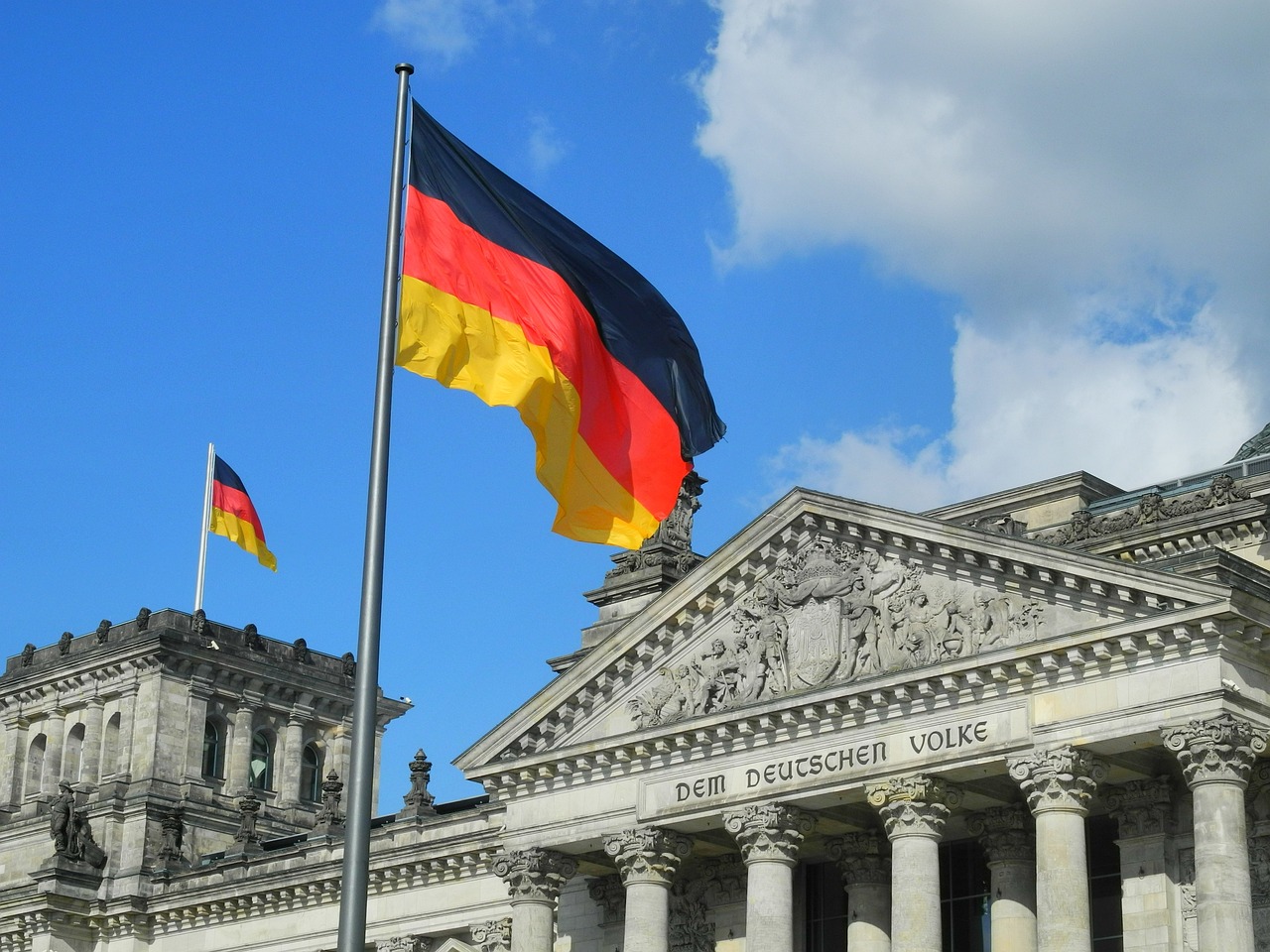Featured
Berlin Strengthens Position as a Fintech Capital: New Festival FIBE in April 2024
FIBE had gathered the key players for the evening event. Among the guests were the minds behind Trade Republic, N26, Mambu, and Solaris – all Berlin unicorns, i.e. companies with a market valuation of more than one billion euros. Economics Senator Franziska Giffey (SPD) also came and felt visibly at ease among the bankers and entrepreneurs.

Messe Berlin is expanding its portfolio. On April 24th and 25th, 2024, the City-Cube Congress arena will host the Fintech Festival FIBE for the first time. This was announced by the trade fair company, the Berlin Finance Initiative (BFI), and the “Handelsblatt” as a partner of the festival in the “Alice Rooftop & Garden”. More than 1000 participants are expected.
Read more about FIBE and find the latest financial news of the day with the Born2Invest mobile app.
FIBE is composed of the words “Fintech” and “Berlin”
Fintech stands for “Financial Technology” and describes companies that sell technology-based financial instruments and services. A fintech ecosystem has developed in Berlin in recent years. More than 250 companies employ around 9000 people. The industry is the second largest startup sector in the capital after information and telecommunications.
FIBE had gathered the key players for the evening event. Among the guests were the minds behind Trade Republic, N26, Mambu, and Solaris – all Berlin unicorns, i.e. companies with a market valuation of more than one billion euros. Economics Senator Franziska Giffey (SPD) also came and felt visibly at ease among the bankers and entrepreneurs. “What we are seeing here is a look through the keyhole, which is just the beginning,” the senator said. “We want to become the forefront of the movement and one of the most important financial centers in Europe.”
FIBE is intended to be a dialog-oriented platform that brings together players from the old and new worlds of finance
Dirk Hoffmann, CEO of Messe Berlin, called Berlin the “place to be for fintech companies in Germany and Europe.” “Our goal is to make FIBE the signature event for the fintech ecosystem in Europe,” Hoffmann said.
A short promotional clip informed the audience about the program of the two-day festival. Aimlessly, buzzwords in English tumbled across the screen – “creation,” “benefit,” “create the future,” and “connect.” The speakers then explained what this meant: FIBE is intended to be a dialog-oriented platform that brings together players from the old and new worlds of finance. It would be informal, a combination of “business and lifestyle”. “I see a beer, I see a cool Dj, we want to bring that lifestyle into fintech,” said Lisa Dally, the festival’s project manager.
The industry can use a good mood. The turnaround in interest rates is making loans more expensive and depressing the willingness of investors to invest. Berlin’s fintech companies also felt the effects in 2022. Although they raised around 1.2 billion euros, it was significantly less than in the previous year. At that time, more than three times that amount had flowed into their pockets.
Joachim Wuermeling, a board member of the Bundesbank, praised the conditions for fintech companies in the capital: “If I were a founder and I asked myself where do I want to grow, I wouldn’t think for a minute: Berlin, of course, not Frankfurt.”
When asked if there was also something to criticize in Berlin, Achim Oelgarth, co-founder of the BFI, answered. He would like to see a one-stop store, i.e. a portal that enables the founding of a company in 24 hours. At the moment, this takes several months in Berlin, he said. He also hopes that the universities will focus more on the financial sector. Frankfurt is clearly outstripping Berlin in this respect.
__
(Featured image by karlherl via Pixabay)
DISCLAIMER: This article was written by a third party contributor and does not reflect the opinion of Born2Invest, its management, staff or its associates. Please review our disclaimer for more information.
This article may include forward-looking statements. These forward-looking statements generally are identified by the words “believe,” “project,” “estimate,” “become,” “plan,” “will,” and similar expressions. These forward-looking statements involve known and unknown risks as well as uncertainties, including those discussed in the following cautionary statements and elsewhere in this article and on this site. Although the Company may believe that its expectations are based on reasonable assumptions, the actual results that the Company may achieve may differ materially from any forward-looking statements, which reflect the opinions of the management of the Company only as of the date hereof. Additionally, please make sure to read these important disclosures.
First published in TAGESSPIEGEL, a third-party contributor translated and adapted the article from the original. In case of discrepancy, the original will prevail.
Although we made reasonable efforts to provide accurate translations, some parts may be incorrect. Born2Invest assumes no responsibility for errors, omissions or ambiguities in the translations provided on this website. Any person or entity relying on translated content does so at their own risk. Born2Invest is not responsible for losses caused by such reliance on the accuracy or reliability of translated information. If you wish to report an error or inaccuracy in the translation, we encourage you to contact us

-

 Crypto6 days ago
Crypto6 days agoEthereum Pushes AI Integration With ERC-8004 and Vision for Autonomous Agents
-

 Biotech2 weeks ago
Biotech2 weeks agoByBug Turns Insect Larvae into Low-Cost Biofactories for Animal Health
-

 Business1 day ago
Business1 day agoDow Jones Near Record Highs Amid Bullish Momentum and Bearish Long-Term Fears
-

 Business1 week ago
Business1 week agoDow Jones Breaks 50,000 as Bull Market Surges Amid Caution and Volatility





















